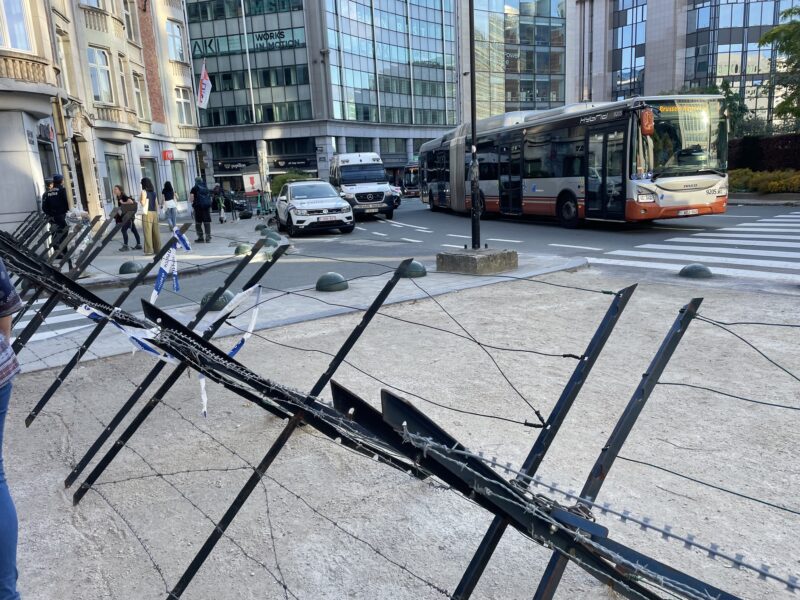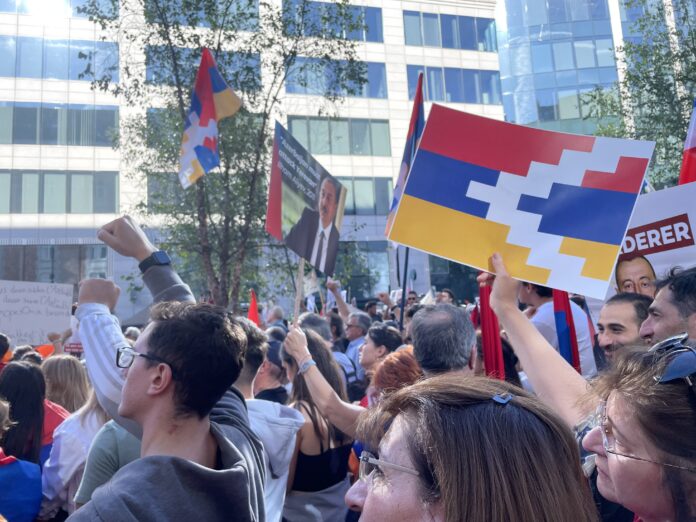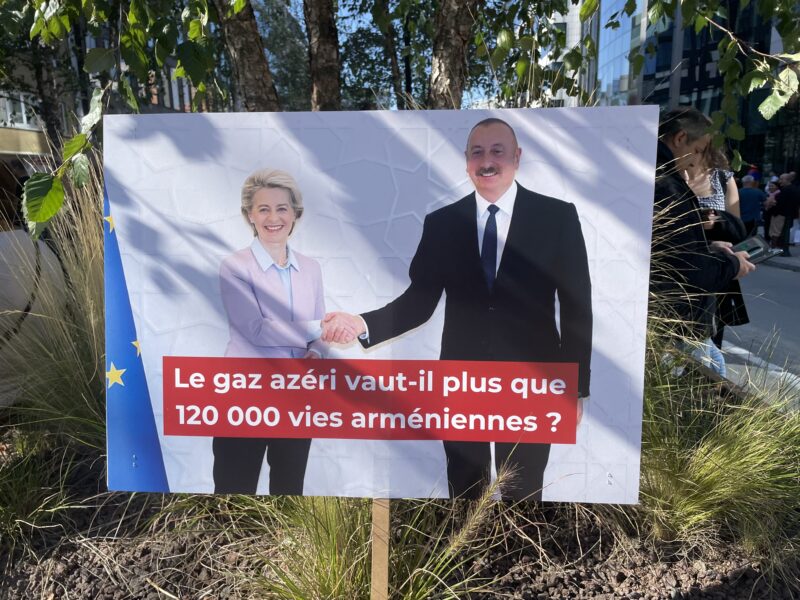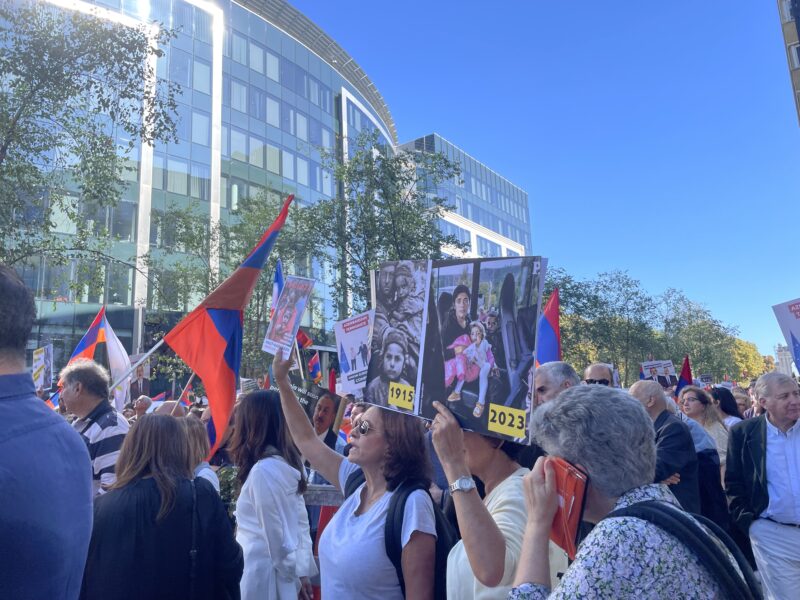BRUSSELS — On October 1, more than 5,000 European Armenians gathered in front of the European Parliament in Brussels. The protest was organized by the group Europeans for Artsakh. It intended to pressure European politicians to sanction Azerbaijan after its invasion of Artsakh on September 19.
On October 1, Artsakh flags flew in large numbers in the streets of Brussels, the heart of the European Institutions. Mer Hayrenik was played and people were holding huge signs that read “Is Azeri gas more important than 120,000 Armenian lives?” and “Sell 2000 years of Armenian civilization for Azeri gas.”
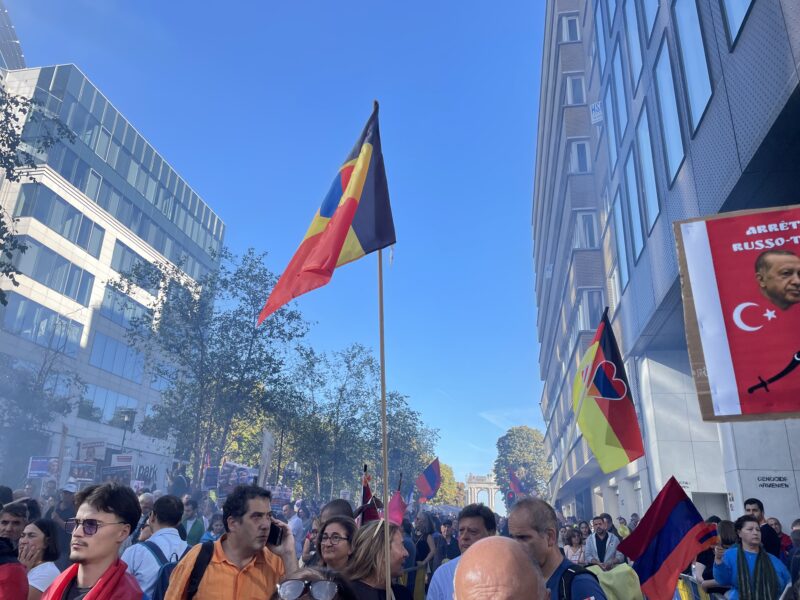
In July 2022, the European Commission’s President Ursula Von der Leyen signed an agreement to double Azerbaijani gas imports by 2027. That was one of the reasons Armenians came from all over Europe to give voice to their indignation at the European Parliament this Sunday afternoon.
The Europeans for Artsakh Movement is a coalition composed of 500 organizations from 17 European countries, involving more than 200 from France, that have come together to condemn Azerbaijan’s actions against Artsakh Armenians over the last ten months.
The gathering had been planned for several weeks to raise awareness of the Azerbaijani blockade of the Lachin Corridor. However, with the invasion of Azerbaijan in Artsakh last September, the goal of the demonstration took on a new urgency. It was a protest that the European Union officials feared, as they placed long lines of barbed wire to prevent people from crossing the street to the Parliament building.
“It’s surprising that the European Commission is afraid of a peaceful demonstration; all we want is justice,” said Alexis T. from Switzerland.
